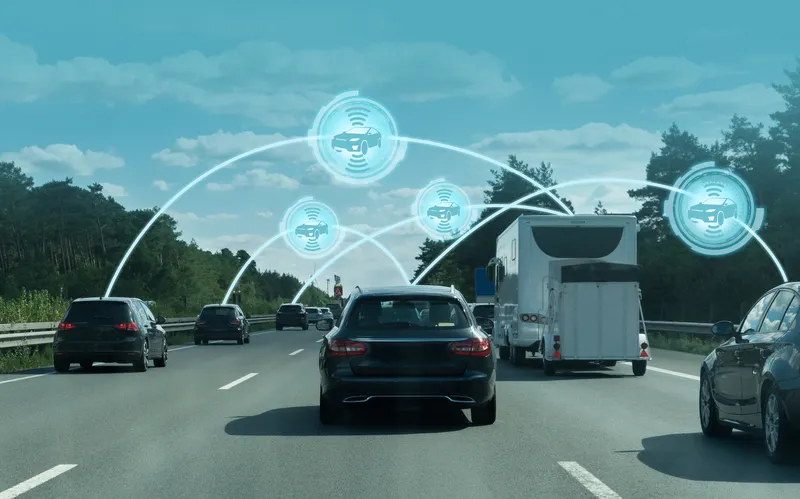Denso International America has entered into an investment agreement with Peloton Technology, which will help accelerate Peloton's development and deployment of platooning technology. The technology aims to increase fuel economy and improve safety for the global trucking industry.
Platooning technology uses vehicle-to-vehicle and vehicle-to-infrastructure (V2X) wireless communication and radar to pair trucks to travel closely together and thus create an aerodynamic system that is similar to drafting in r
June 1, 2015
Read time: 2 mins
Denso International America (4306 Denso Corporation) has entered into an investment agreement with Peloton Technology, which will help accelerate Peloton's development and deployment of platooning technology. The technology aims to increase fuel economy and improve safety for the global trucking industry.
Platooning technology uses vehicle-to-vehicle and vehicle-to-infrastructure (V2X) wireless communication and radar to pair trucks to travel closely together and thus create an aerodynamic system that is similar to drafting in race cars. The direct communication system provides a way for trucks to 'talk' with each other and safely follow another truck with the same features to improve braking and acceleration time, increase safety and reduce fuel costs.
"Denso is excited to build a strong relationship with Peloton," says Tony Cannestra, Director of Corporate Ventures for Denso International America, Inc. "As a leader in vehicle-to-vehicle (V2V) technologies, we are eager to work closely with Peloton to implement the first large-scale deployment of a V2V system. Denso believes that Peloton's system has the potential to help increase safety and fuel savings in the transportation industry."
For more than a decade, Denso has been researching and developing V2X technology systems to allow cars to communicate with surrounding vehicles and traffic signals. It claims the application of this technology to the trucking industry could potentially help large fleet vehicles reduce fuel consumption by 10 per cent for the rear truck and 4.5 percent for the front truck (based on industry-standard SAE J1321 Type II fuel economy testing conducted by the North American Council for Freight Efficiency and trucking fleet C.R. England).
Platooning technology uses vehicle-to-vehicle and vehicle-to-infrastructure (V2X) wireless communication and radar to pair trucks to travel closely together and thus create an aerodynamic system that is similar to drafting in race cars. The direct communication system provides a way for trucks to 'talk' with each other and safely follow another truck with the same features to improve braking and acceleration time, increase safety and reduce fuel costs.
"Denso is excited to build a strong relationship with Peloton," says Tony Cannestra, Director of Corporate Ventures for Denso International America, Inc. "As a leader in vehicle-to-vehicle (V2V) technologies, we are eager to work closely with Peloton to implement the first large-scale deployment of a V2V system. Denso believes that Peloton's system has the potential to help increase safety and fuel savings in the transportation industry."
For more than a decade, Denso has been researching and developing V2X technology systems to allow cars to communicate with surrounding vehicles and traffic signals. It claims the application of this technology to the trucking industry could potentially help large fleet vehicles reduce fuel consumption by 10 per cent for the rear truck and 4.5 percent for the front truck (based on industry-standard SAE J1321 Type II fuel economy testing conducted by the North American Council for Freight Efficiency and trucking fleet C.R. England).










